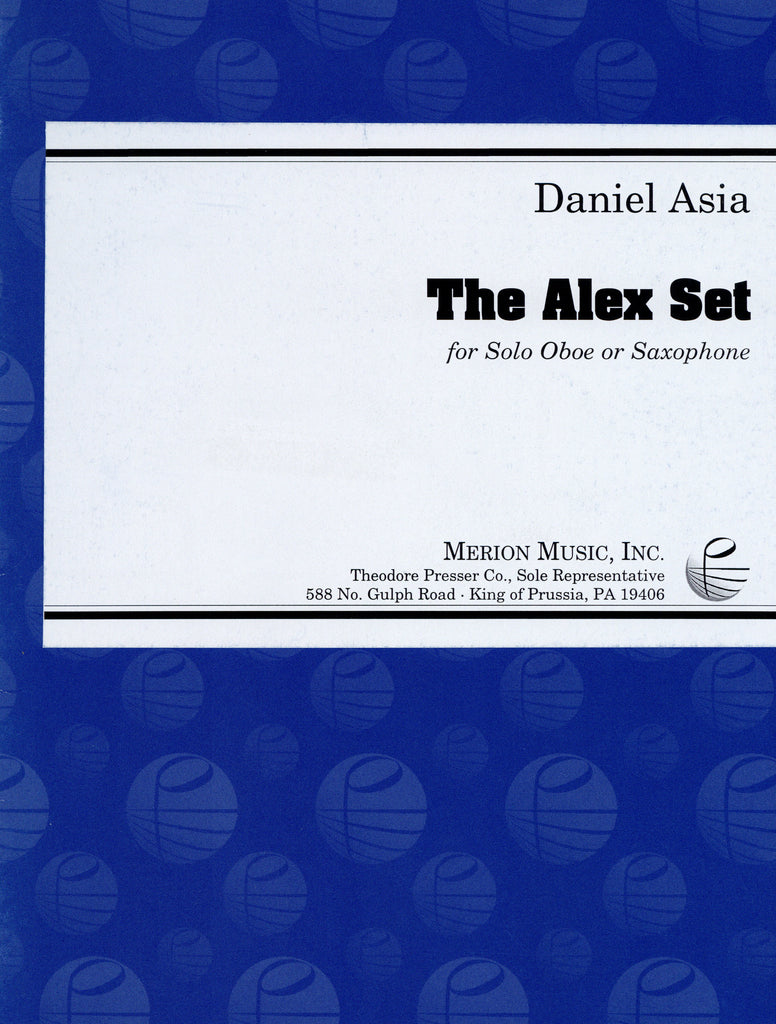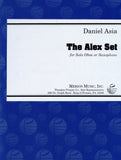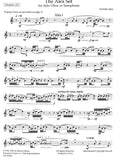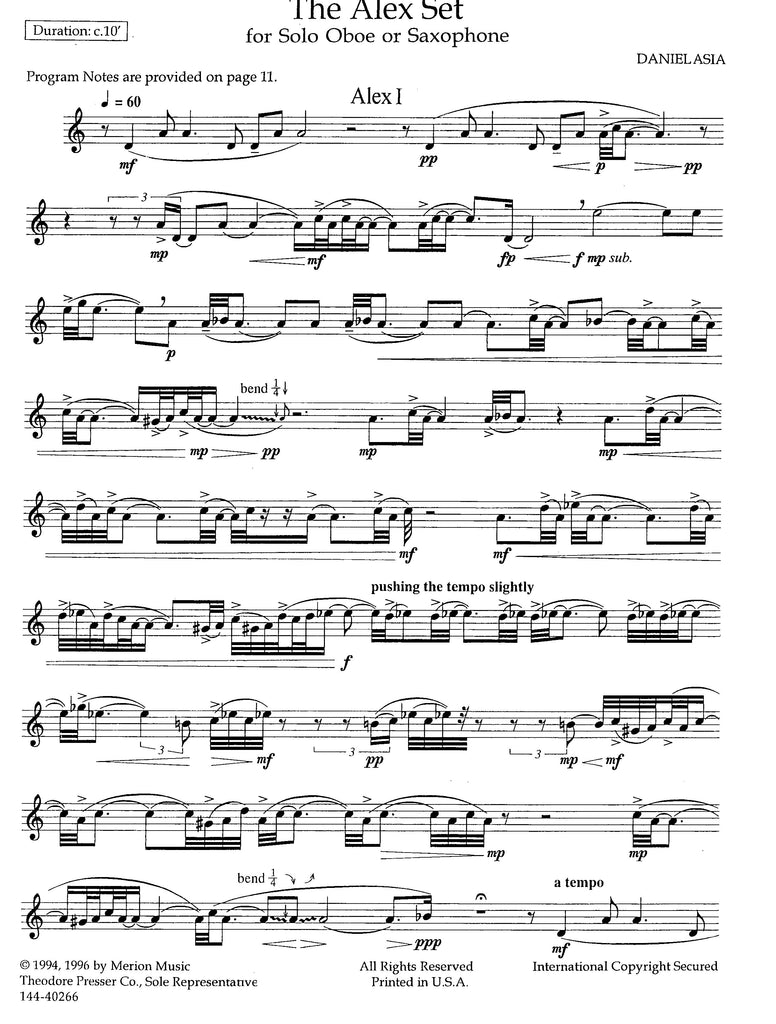The Alex Set - SOLO OB
Composer: Asia, Daniel
Publisher: Presser
Edition: 7973
$18.00
The Alex Set
for solo oboe
by Daniel Asia (b. 1953)- American composer
Program Notes
In 1971, as an undergraduate at Hampshire College, and under the tutleage of Randall McClellan, I wrote the initial Alex. It was a few years latter, while on the faculty of the Oberlin Conservatory, that I met the eminently gifted oboist, Alex Klein. A friendship blossomed, that has continued to this day.
In the winter of 1995, Alex suggested that I write more music for oboe, perhaps a continuation of the Alex piece. After some hesitation (after all, the first Alex was already twenty-five years old, and my music has changed and developed considerably in this intervening period), I embarked on this project. The result is The Alex Set, which includes the first Alex as its first movement. Alex II and Alex III take as their starting point various rhythmic, pitch, and/or registral ideas from this first Alex, and can certainly be viewed as variations on it. The Interludes are just that.
About the title. Titles of works are never easy for me. What exactly, is the relationship between a piece of music and its title anyway? I only remember, that when asked the name of the initial work, I knew it couldn’t be Steve, Bob, Josh, or even Gwen. So I settled on Alex- it just seemed to fit. Given latter developments, its clear that it did.
Alex, for solo oboe, is one of my first mature works. Written for a colleague, while an undergraduate at Hampshire College, the three minute work is in one movement. It is built on a theme of two parts; a perfect fifth that rises and falls in simple time values, and the addition of a grace note figure or turn, that is a minor third. In the development of this rather plaintive work, the latter theme gradually takes precedence, with a resultant increase in speed and intensity, and with the opening up, and filing in, of the musical space. Dynamics become louder, and the music finally pushes up to the highest register at the point of greatest intensity. The work takes a number of curious twists and turns, as befits a piece of improvisatory character such as this. There are pauses for reflection, brief interjections, and restatements. The conclusion, rather than ending with a period, finishes with a question mark, or perhaps better put, a raised eyebrow.
-Daniel Asia
Duration: 13:00





Share this item: